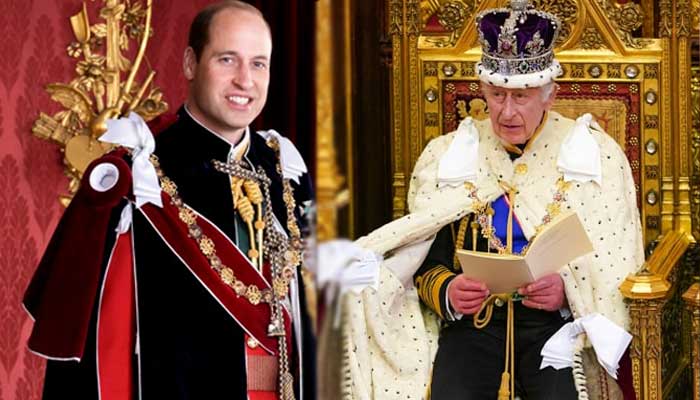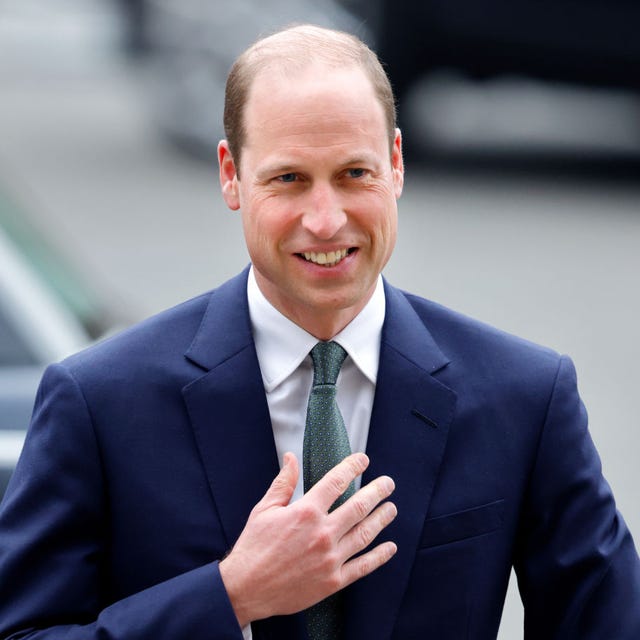Royal Shock: King Charles Stuns Britain with Unexpected Abdication, Transferring Crown To Prince William

In a move that has left the United Kingdom in utter shock, King Charles III has made an announcement that will change the course of British history.
The King has declared his abdication, paving the way for his eldest son, Prince William, to become the next Monarch.
In a televised address to the nation, a visibly emotional King Charles revealed that he would be stepping down from the throne, citing a desire to allow the younger generation to lead the country into the future. In a voice laden with emotion, Charles said, “After much reflection and prayer, I have come to the decision that the time has come for me to abdicate the throne of the United Kingdom.” His voice wavered as he continued, “The last few years have been a period of tremendous upheaval, both for our nation and for my own family. I believe that the kingdom would be better served by fresh leadership—someone who can inspire and unite the country in these challenging times.”
The announcement came as a complete surprise to the British public, who had widely expected the 74-year-old Charles to reign for at least another decade. Buckingham Palace had given no prior indication that an abdication was on the horizon, and the news sent the stock market tumbling, prompting an outpouring of both shock and sorrow on social media.
“I’m absolutely gutted,” said lifelong royalist Jessica Worthington, wiping away tears. “Charles has been my sovereign for my entire adult life. I never imagined he would give up the throne like this. It’s the end of an era.” Indeed, the last time a British monarch voluntarily abdicated was in 1936, when Edward VIII infamously gave up the crown to marry his divorced American lover, Wallis Simpson. That decision plunged the monarchy into crisis, but Charles insisted that his own choice to step down was made with the best interests of the country in mind.
“This is not a decision that I have made lightly,” he continued in his address. “I have always strived to serve the people of this great nation with honor and integrity, but I’ve come to the conclusion that I am no longer the right person to guide the United Kingdom through the challenges that lie ahead. The country needs a younger, more dynamic leader, and I believe that person is my eldest son, William.”
A coronation to remember is now in the works. The 41-year-old Duke of Cambridge will take on the mantle of King William V, with his wife Katherine becoming Queen Consort. In a separate statement, William acknowledged the immense responsibility that now rests upon his shoulders. “I am humbled and honored that my father has entrusted me with the future of our beloved Kingdom,” he said. “These are uncertain times, but I pledge to dedicate my life to serving the people of the United Kingdom with the same duty, compassion, and resolve that has always characterized the House of Windsor.”

The world waits with bated breath for a coronation that promises to be unlike any before. Set to take place on December 1st, 2023—just three months after his father’s abdication—it will be the first coronation ceremony held in Britain since 1953 when Elizabeth II ascended to the throne following the death of her father, King George VI. Preparations are already underway for the historic event, which is expected to be a grand, lavish affair befitting the new King’s status. Buckingham Palace has revealed that the service will be held at Westminster Abbey and will be attended by dignitaries and royals from around the world.
“This will be a coronation fit for a new era,” said Royal commentator Emily Andrews. “William and Katherine are seen as a thoroughly modern, relatable royal couple, and I’m sure they’ll want to put their own stamp on the proceedings. We can expect to see some updates to the traditional ceremony to reflect the changing times.”
The public reaction to Charles’s abdication has been mixed, with some expressing sadness at the end of his reign while others have welcomed the news. “Charles has always been a bit of a divisive figure—some love him, some love to hate him,” said Lisa Barker, a 32-year-old Londoner. “I think a lot of people are cautiously optimistic about William taking over. He’s younger, more charismatic, and seems to have a better grasp of modern PR, but there’s also a worry that he might not be ready for the job.”
William will face no shortage of challenges as King. The country is still reeling from the economic fallout of the COVID-19 pandemic, and the cost-of-living crisis is putting immense strain on households across the UK. There are also growing calls for a second Scottish independence referendum, which could potentially lead to the breakup of the United Kingdom. Additionally, the new monarch will have to navigate the thorny issue of the monarchy’s colonial legacy and its role in Britain’s history of imperialism. In recent years, there has been increased scrutiny and criticism of the Royal Family’s ties to slavery and oppression, and William will no doubt be expected to address these concerns head-on.
As the House of Windsor steps into a new chapter, the eyes of the world will be fixed on King William—watching to see if he can lead the monarchy into a future as enduring as its storied past. It’s a tall order, but if anyone can do it, it’s him.
News
GARDENERS BEWARE: The Hidden Enemies of Your Tomato Plants—and How to Fight Back Fast! /dn
GARDENERS BEWARE: The Hidden Enemies of Your Tomato Plants—and How to Fight Back Fast!Revealed: The Most Common Tomato Ailments and How to Defeat Them Before It’s Too…
Old Doctors: Drink Cumin Water Before Bed to Relieve These 13 Health Issues by Morning! /dn
Unlocking the Ancient Secret: How Cumin Water Can Transform Your Health Overnight For centuries, traditional medicine has revered cumin seeds—known as “jeera” in Hindi—for their potent health…
Goosegrass (Eleusine indica): The Unsung Hero for Kidney Health /dn
Goosegrass (Eleusine indica): The Unsung Hero for Kidney Health Have you ever thought that a common roadside weed could hold the key to better kidney health? Enter Goosegrass (Eleusine…
NO EXERCISE, NO WEIGHT LOSS PILLS – THE 69-YEAR-OLD WOMAN’S SECRET TO LOSS OF 36KG SURPRISES THE WORLD! /dn
NO EXERCISE, NO WEIGHT LOSS PILLS – THE 69-YEAR-OLD WOMAN’S SECRET TO LOSS OF 36KG SURPRISES THE WORLD! In a world where weight loss is often associated…
The Dangerous Allure of Datura – A Beautiful Plant with Hidden Perils /dn
The Dangerous Allure of Datura – A Beautiful Plant with Hidden Perils The plant in question is both captivating and perilous; its beauty masks a dark reality….
Homemade Natural Painkiller: A Simple 3-Ingredient Remedy for Fast Relief /dn
Homemade Natural Painkiller: A Simple 3-Ingredient Remedy for Fast Relief Are you looking for an effective, all-natural way to ease muscle soreness, joint pain, and inflammation? This…
End of content
No more pages to load











